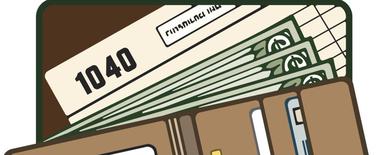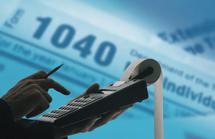Was that House a Good Investment when you consider the tax implication? The Answer may not be so obvious
by Tax Master DFW on 11/25/14
Title:
Was that House a Good Investment when you consider the tax implication? The Answer may not be so obvious
Word Count:
477
Summary:
I get asked all the time about housing as an investment, and as I talk with people it is amazing how differently people look at it. Forget investment property for the moment and consider how we should evaluate the investment performance of our own homes.
Keywords:
#Arlington_Tax_Preparation, #Tax_Preparation, #Tx_Tax_prep, #Texas_Tax_Preparation, #Arlington_Tax_Prep, #Arlington_TX, #Tax_Prep, #DFW_Tax_Prep, #Tax_Filing, #Taxes, #Lewisville_Tax_Prep, #Lewisville_Tax_Preparation, #DFW_Tax_Preparation, #Arlington, #Tarrant_County, #Reduce_Taxes, #Tax_Refunds, #Pay_Taxes, #Tax_Help, #Bookkeeping, #DFW_Bookkeeping, #Investing, #tax_bookkeeping, #DFW, #Texas, #North_Texas, #Filing_Taxes, #1099, #W-2, #W-4, #W-9
Article Body:
I am surprised how many people do not know the difference between ‘enterprise value’, which is the sales price of a home (debt plus equity), and ‘equity value’, which is what is left at the end of the day when you sell your home and pay off the mortgage. In determining whether this was a good investment for you, it is only the latter calculation that matters.
Most people simply look at how much the value of their home has appreciated since they bought it, and compare it to what they paid. Let us say someone bought a home for $500,000 a year earlier and their neighbor’s identical home just sold for $550,000. Simple math would suggest a potential 10% return in one year (a $50,000 profit on a $500,000 purchase). This, while straightforward, is not an accurate calculation for several reasons.
First, it is critical to factor in transaction costs on the sale of your home and deduct them from the gross sales price to see how much of the sales price you have left. These include what it might cost you to prepare the house for sale (painting, landscaping, staging in some cases, etc.), as well as real estate commissions and other transaction related costs. Let us say in our hypothetical example our seller would invest $10,000 in sprucing the place up for sale, and the real estate commission plus other closing costs on the hypothetical $550,000 sale might be another $33,000 (say 6% of the sales price). Thus that $550,000 sales price results in only $507,000 after these transaction-related costs, implying a mere 1.4% return ($7,000 profit on a $500,000 purchase price), right? Wrong again.
To calculate your investment return you need to compare your profit (or loss) to the equity you have invested, not the entire home price. Let us say you put 5% down to buy the home, which equated to $25,000. Your $7,000 profit in this case actually represents a very attractive 28% return on your investment in only one year. One way smart homeowners can increase their returns is to appreciate how much the return on their invested equity can be enhanced by saving say 1% in the agent’s listing commission. In the example above, a 5% sales commission vs. 6% would have increased our hypothetical seller’s return on their $25,000 of equity investment from the 28% we just calculated to an astonishing 50% ($12,500 profit on the $25,000 investment).
A couple of basic takeaways from this: First, make sure to factor in all costs of a transaction. Second, understand the difference between the aggregate home value and the equity you have invested in the home, which is what impacts your true economic return. Third, appreciate the impact sales-related costs can have on your return. While a $5,000 commission difference seems relatively insignificant in the context of a $550,000 home sale, it is VERY significant in relation to the equity investment in your home, which is the basis of determining your return on your investment.
Comments (0)








